Browse here for a selection of policy briefs and other documents that focus on applying resilience thinking and include recommendations and insights for decision-makers and practitioners. Please click on the images to navigate to the briefs.
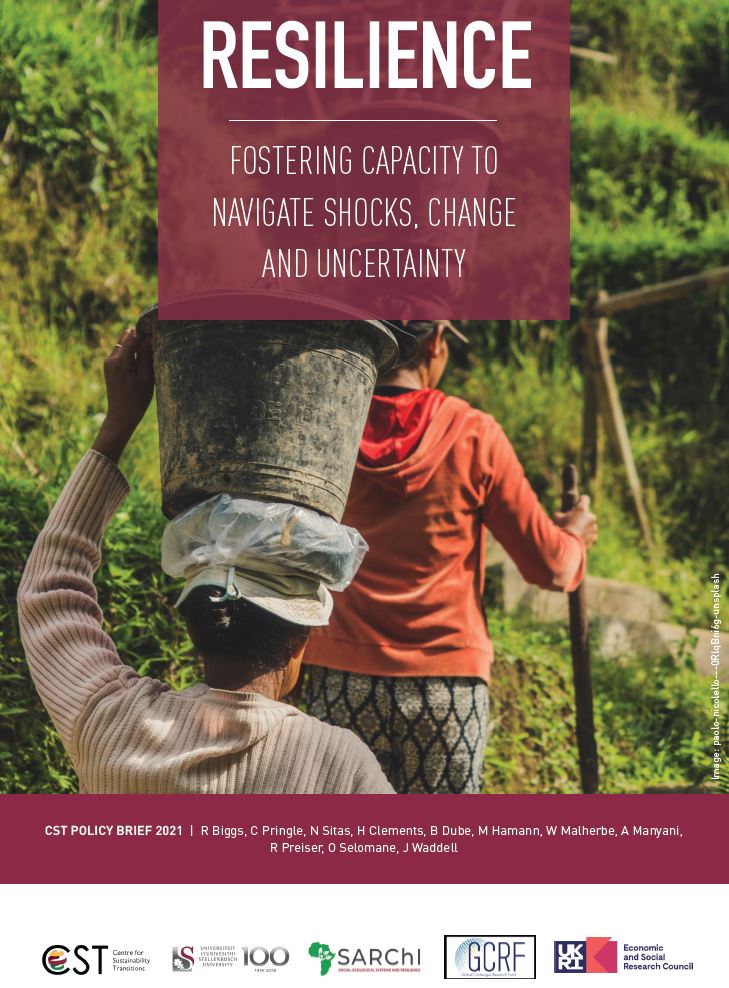
Resilience: Fostering capacity to navigate shocks, change and uncertainty
Biggs, R., Pringle, C., Sitas, N., Clements, H., Dube, B., Hamann, M., Malherbe, W., Manyani, A., Preiser, R., Selomane, O. and Waddell, J.
CST Policy Brief, 2021
As the concept of resilience continues to evolve rapidly and be used in different contexts and for different purposes, it is clear that there are a number of ways in which resilience can be conceptualized. This policy brief outlines what is understood as social-ecological resilience, and highlights key strategies and principles for fostering resilience in southern Africa and beyond.
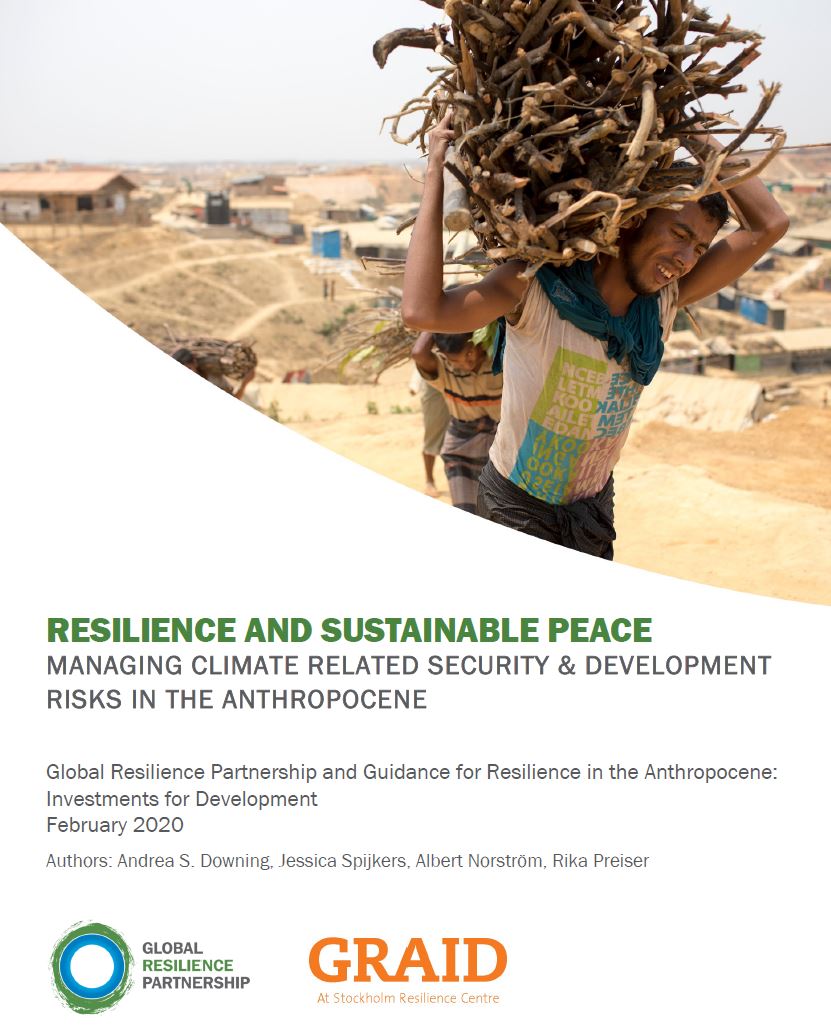
Resilience and sustainable peace
Downing, A.S., Spijkers, J., Norström, A. and Preiser, R.
GRAID Policy Brief, 2020
A system in conflict can also be resistant to peacebuilding efforts, locked into dynamics that reinforce and reproduce causes of tensions. Resilience thinking and the science on transformations can help identify leverage points for change and inform on how to use shocks and disturbances to spur renewal and innovative thinking.
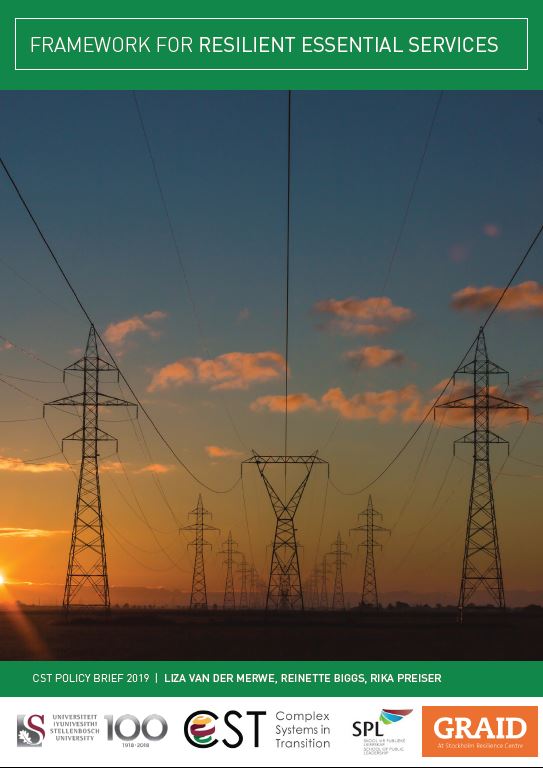
Framework for resilient essential services
Van der Merwe, L., Biggs, R., and Preiser, R.
CST Policy Brief, 2019
Essential services, like water and electricity, underpin modern life. Disruption in service delivery exposes critical inter-dependency, ranging from community level to the national economy. Therefore essential service providers, such as energy utilities, have a duty of care to ensure resilient service delivery. Policy can promote pre-emptive and holistic resilience practices among essential service providers.
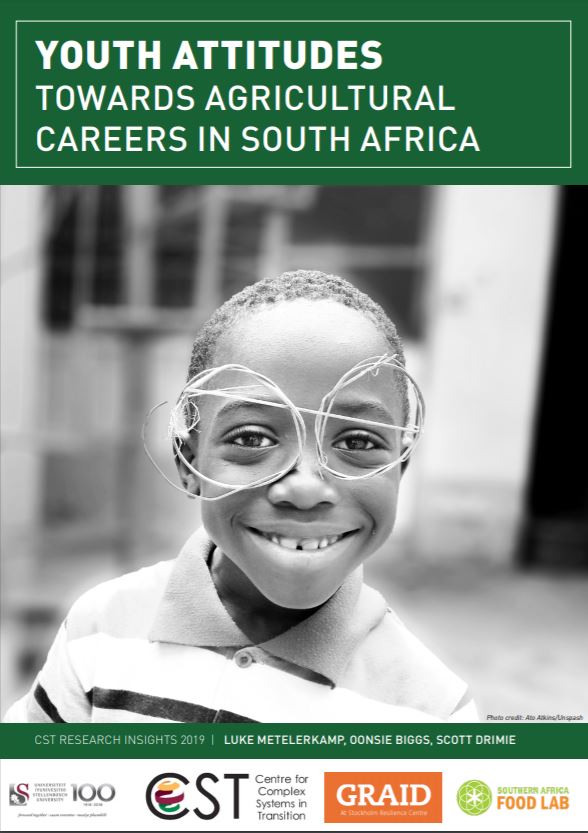
Youth attitudes towards agricultural careers in South Africa
Metelerkamp, L., Biggs, R. and Drimie, S.
CST Research Insights, 2019
Increasing youth participation in sustainable food systems is essential if the Sustainable Development Goals on poverty, hunger and decent work are to be met in South Africa. Research suggests that in spite of strong negative stigmas and weak support, many young people do want to farm. However, aspirant farmers tend to feel trapped by th options available to them in the current food system.
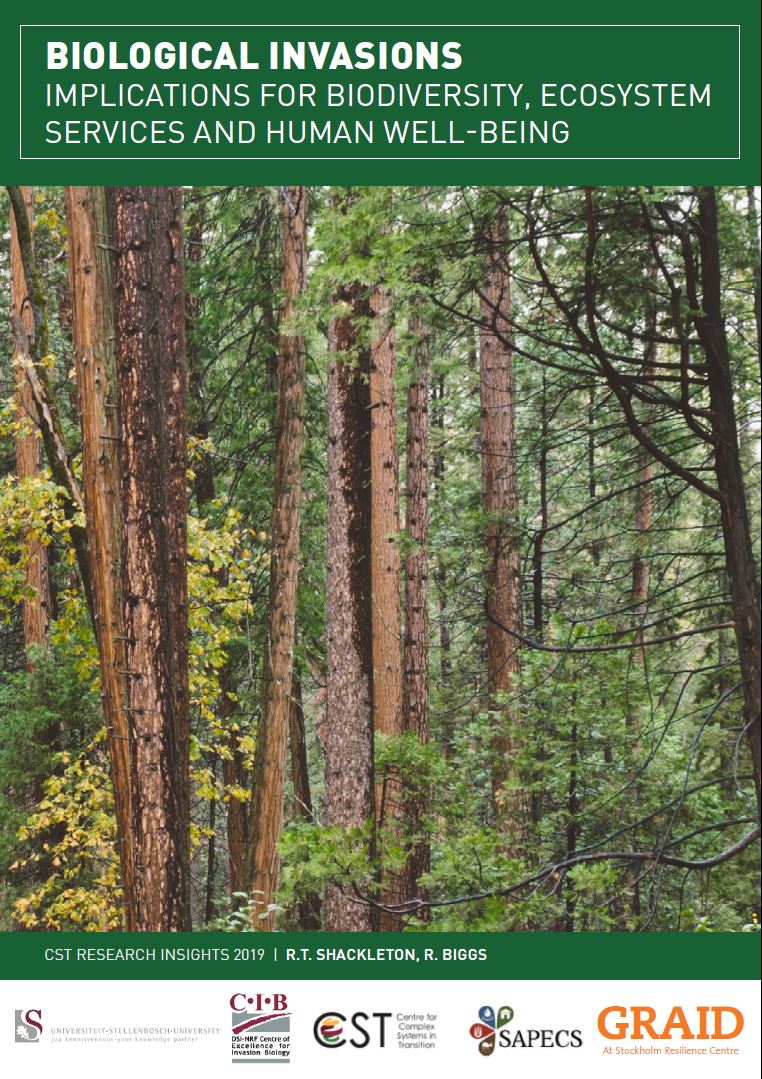
Biological Invasions – implications for biodiversity, ecosystem services and human well-being
Shackleton, R. and Biggs, R.
CST Research Insights, 2019
Invasive species are recognised as one of the key drivers of human-induced global degradation. In fact, internationally, biological invasions result in economic losses of US$1.4 trillion per year. These costs arise as invasive alien species induce numerous negative impacts on biodiversity, ecosystem services and human well-being.
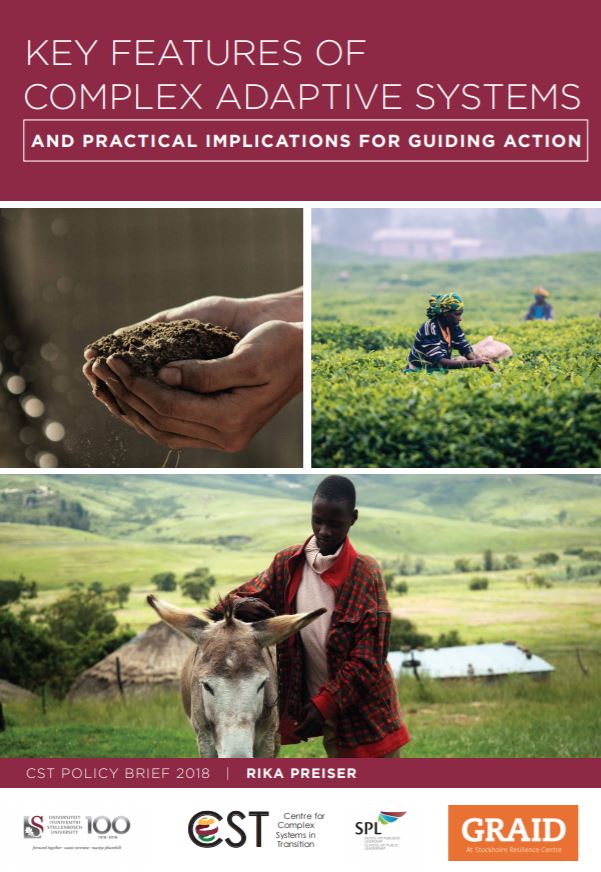
Key features of complex adaptive systems and practical implications for guiding action
Preiser, R. and Biggs, R.
CST Policy Brief, 2018
The growing recognition of the intertwinedness of society and the environment is driving a reframing of the conventional divide between social and natural systems and has given rise to the study of social-ecological systems (SES) as being complex adaptive systems. This reframing offers new theoretical frameworks, empirical understanding, and practical heuristics to better respond to the challenges of the Anthropocene.
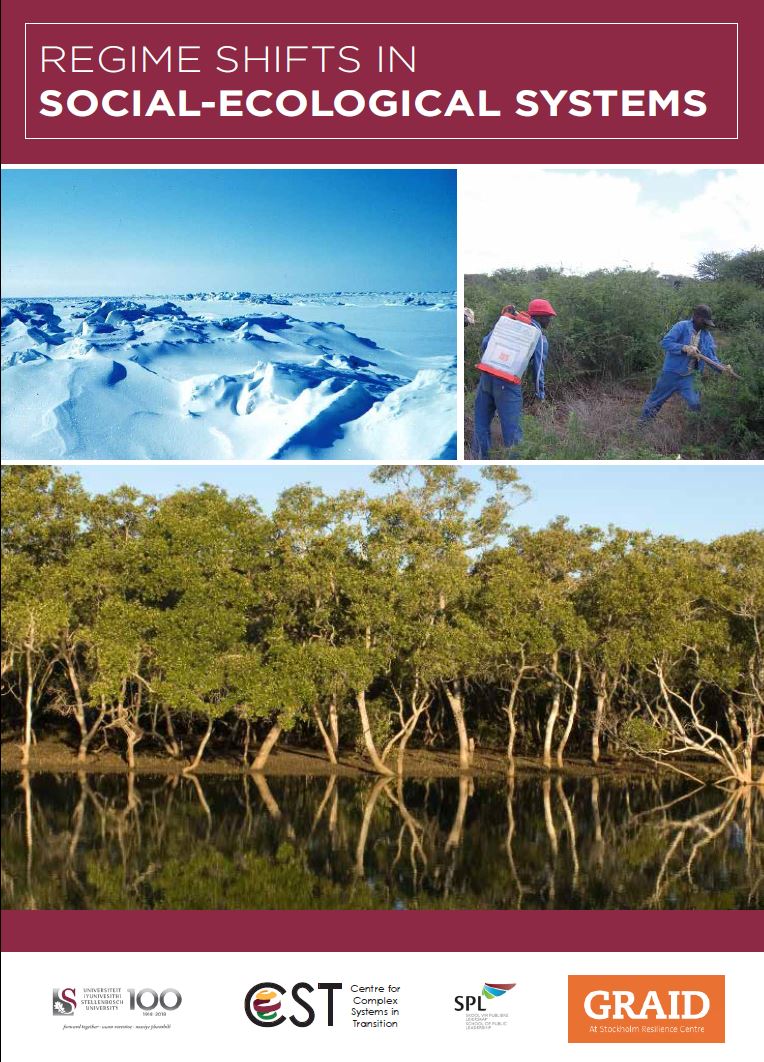
Regime shifts in social-ecological systems
Maciejewski, K. and Biggs, R.
CST Policy Brief, 2018
Regime shifts are sudden, long-lasting changes in the structure and function of social-ecological systems that may have profound effects on human economies and societies. Regime shifts have been documented in a variety of systems, including coral reefs, freshwater lakes, marine systems and savanna rangelands, as well as in human behavior, economies and political systems. Accounting for potential regime shifts is key to achieving sustainable development, reducing poverty and halting biodiversity loss, due to their substantial impacts on ecosystem services and human well being.
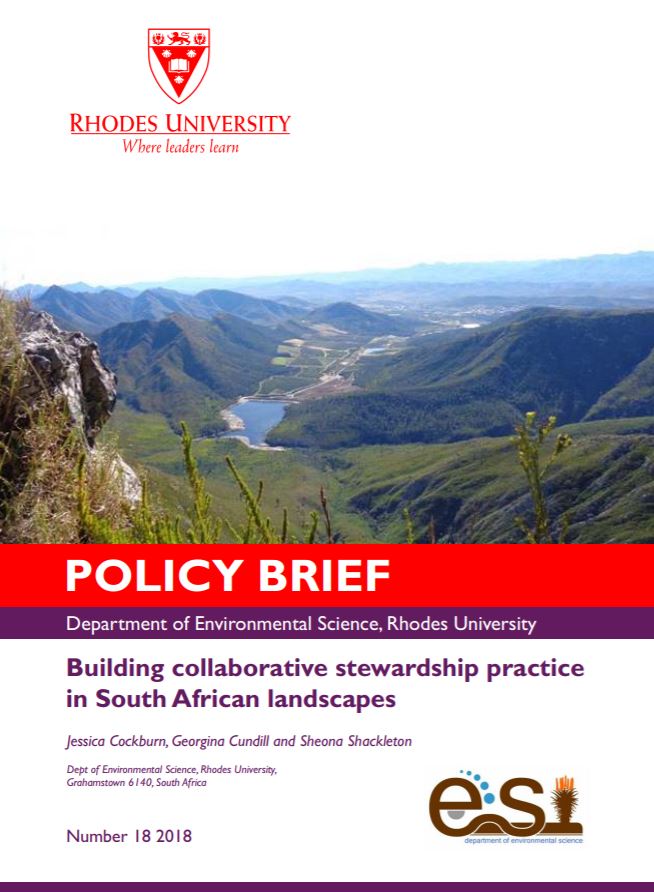
Building collaborative stewardship practice in South African landscapes
Cockburn, J., Cundill, G. and Shackleton, S.
Dept of Environmental Science, Rhodes University, Policy Brief, 2018
The policy and practice of stewardship in South Africa stretches across various sectors. These include natural resource management, biodiversity conservation, agriculture, rural development and land reform, and catchment management. Although studies have found that the practice of stewardship in South Africa is dominated by the biodiversity stewardship tool in the conservation sector, there is also evidence of more integrated cross-sectoral approaches emerging.
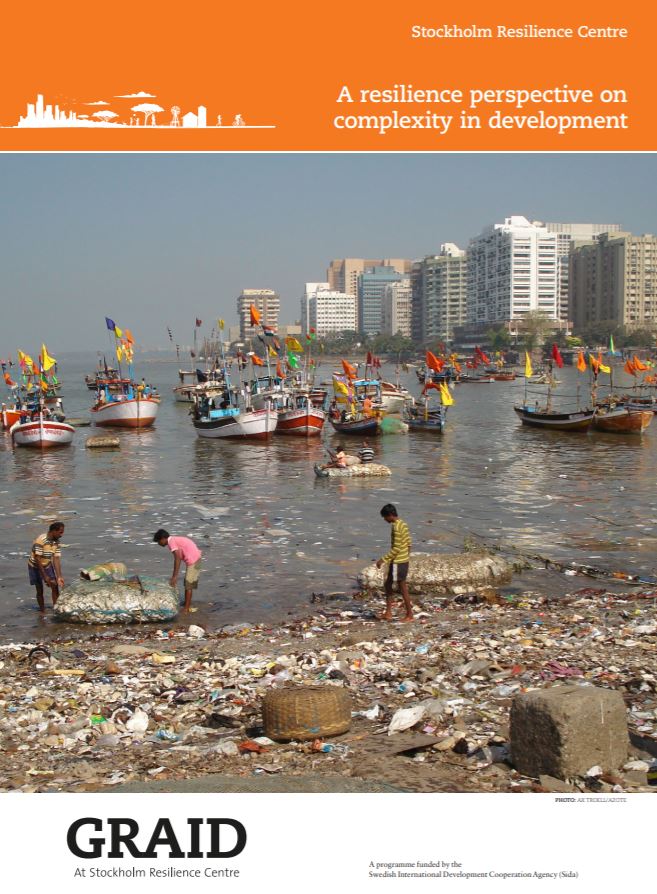
A resilience perspective on complexity in development
Reyers, B., Moore, M.-L., and Merrie, A.
GRAID at Stockholm Resilience Centre briefing note, 2017
This note summarises discussions from a Global Resilience Partnership Learning Workshop held at the Stockholm Resilience Centre, February 2017. Often, the word ‘complex’ is used as a proxy for describing why a project has failed. But acknowledging that systems are complex requires much more. By adopting a complexity lens on the world, resilience, with its roots deep in complexity science and the science of surprise, helps to dig below the surface of events, shocks and surprises.
